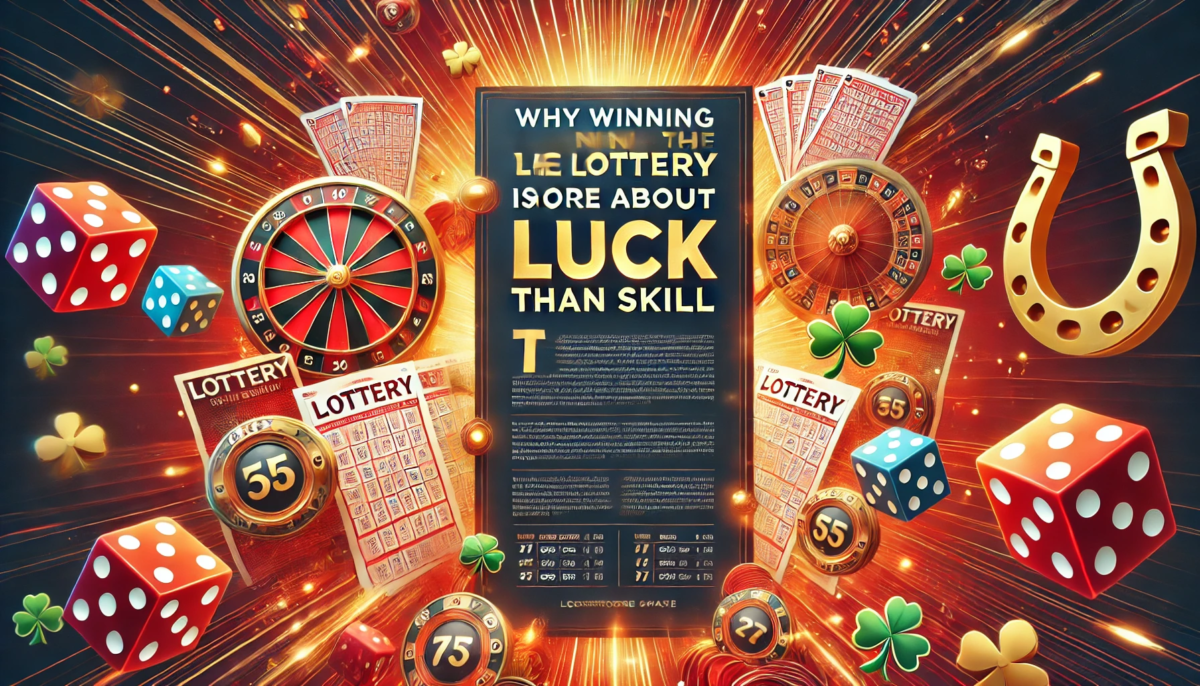The allure of the lottery lies in its promise of turning a small investment into a life-changing windfall. With millions of tickets sold every day, many players adopt strategies and systems in the hopes of increasing their odds of winning. But when it comes down to it, the lottery is a game of pure chance—luck, not skill, determines the outcome.
In this article, we’ll explore why winning the lottery is primarily about luck, the science behind the randomness of draws, and why understanding this can help you approach the game responsibly. Whether you’re buying a ticket from your local retailer or playing online on platforms like Dewakoin, knowing the role of luck can enhance your experience and set realistic expectations.
The Science Behind Lottery Randomness
1. Random Number Generators (RNGs)
Lotteries are designed to be completely random. Modern lottery systems use Random Number Generators (RNGs) to ensure that every draw is fair and unbiased. RNGs are sophisticated algorithms that produce unpredictable results, making it impossible to predict the winning combination.
- How RNGs Work: RNGs generate sequences of numbers with no discernible pattern. This ensures that each draw is independent and unaffected by past results.
- Implication: No amount of strategy, skill, or analysis can influence the outcome of a lottery draw.
2. Probability and Odds
The odds of winning the lottery are astronomically low, which is why jackpots often reach such massive amounts. For example:
- Powerball (USA): Odds of hitting the jackpot are approximately 1 in 292 million.
- Mega Millions (USA): Odds are about 1 in 302 million.
- Smaller Lotteries: Regional or state lotteries may have better odds, but they’re still overwhelmingly skewed against any single ticket.
Even if you buy multiple tickets, the improvement in your odds is minimal due to the sheer size of the number pool.
Why Skill Doesn’t Apply
1. No Control Over Outcomes
Unlike games of skill, such as poker or blackjack, the lottery provides no opportunity to influence the outcome. Your chances of winning are the same regardless of how you pick your numbers—whether you use a quick-pick option, follow a strategy, or choose numbers based on personal significance.
2. Equal Odds for Every Ticket
Every ticket has an equal chance of being drawn, regardless of the numbers chosen or the method used to select them. The draw does not “favor” certain numbers, players, or tickets.
3. Past Results Don’t Affect Future Outcomes
One common misconception is that past draws influence future results, leading some players to avoid numbers that have been recently drawn or to favor those that haven’t appeared for a while. In reality, the lottery is independent, and each draw is unrelated to the last.
Why People Believe in Skill-Based Strategies
Despite the randomness of the lottery, many players believe that certain strategies can improve their chances. Here are some common myths:
- Hot and Cold Numbers
- Myth: Frequently drawn numbers (“hot”) are more likely to appear again, while numbers that haven’t been drawn recently (“cold”) are “due” for a win.
- Reality: Every number has an equal chance of being drawn, regardless of its past appearances.
- Lucky Numbers
- Myth: Choosing personal “lucky” numbers increases your chances of winning.
- Reality: While these numbers may hold sentimental value, they have no impact on your odds.
- Patterns and Sequences
- Myth: Avoiding sequences like 1-2-3-4-5-6 or choosing a mix of odd and even numbers improves your chances.
- Reality: Patterns or sequences have no bearing on the randomness of the draw.
Why Luck is the Only Factor
1. The Role of Randomness
Randomness is the cornerstone of lotteries. The process ensures fairness and gives every player an equal shot, regardless of background, strategy, or skill.
2. Statistical Improbability
The sheer size of the number pool in most lotteries makes it nearly impossible to devise a reliable system for increasing your odds. Even with unlimited resources, predicting the exact winning combination is statistically improbable.
3. Case Studies of Winners
Most lottery winners will tell you their win was purely luck. Many winners use quick-pick options, where numbers are randomly selected by a machine, and they win just as frequently as those who carefully choose their numbers.
How to Approach the Lottery Responsibly
Understanding that the lottery is based on luck, not skill, can help you play responsibly. Here’s how:
- Set a Budget
- Treat the lottery as a form of entertainment, not an investment. Decide how much you’re willing to spend and stick to it.
- Play for Fun
- Enjoy the excitement of participating, but don’t rely on the lottery as a financial strategy.
- Use Trusted Platforms
- When playing online, choose reputable platforms like Dewakoin, which offer transparency and fairness in their lottery games.
- Avoid Chasing Losses
- Remember that the odds are not in your favor. If you don’t win, accept it and avoid spending more money in an attempt to “make it back.”
Conclusion: Embrace the Luck Factor
Winning the lottery is one of life’s greatest strokes of luck, not a skill-based achievement. While strategies and systems may make the game more engaging, they won’t change the fundamental randomness of the draw. By understanding this, you can approach the lottery with realistic expectations and enjoy the experience without unnecessary stress.
Whether you’re playing locally or online with Dewakoin, keep in mind that the thrill of the game lies in the possibility of winning—not the certainty. Play responsibly, dream big, and remember that when it comes to the lottery, it’s all about luck.
